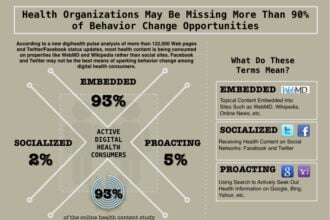Keeping physicians and staff members connected and improving workflows are noble goals as health care organizations adopt newer communications technologies.
But the changes, such as a move to text messaging, are really only meaningful if they help patients. Some providers are trying a more direct approach, using technology to enhance dialogue not only with each other, but with the people they care for.
Two recent journal articles support the idea that text messages between clinicians and patients can bring major benefits for health care.
An important point to keep in mind, though, is that standard text messages are not HIPAA-compliant. The growing body of evidence that texting boosts the quality of care underscores the need for secure messaging solutions, like the Doc Halo app, that keep protected health information safe.
‘How are things going?’
An analysis from the University of Connecticut found that when patients with HIV/AIDS and their health care providers texted with each other, the patients were more likely to stick with their medication routines. Antiretroviral therapies have made it possible for many patients to live for years or decades with the infection, but the drug regimens require strict adherence.
The article in the journal PLOS ONE was an analysis of eight earlier studies, and the text messages varied widely. In some cases they were just daily medication reminders. But in one study, a weekly text asked patients how things were going, and if they replied that they were having problems, a clinic staff member called them.
“The overall effects of the studies varied, but the ones that showed the best results were those that went beyond simple reminders and really tapped into the doctor-patient relationship,” the paper’s lead author, David Finitsis, said in an article at UConn Today.
Finitsis, a doctoral candidate in clinical psychology, said texting might be equally helpful for patients with hypertension, diabetes and other chronic diseases, as well as for transplant recipients.
“I can foresee the day when making sure patients have their doctor’s smartphone app will be just as important as making sure they have the correct prescriptions when they leave the office,” he said.
‘Simple, positive and conversational’
Meanwhile, a study in the Journal of Adolescent Health found enthusiasm among at-risk teen girls for the idea of a texting program geared toward violence prevention.
The researchers interviewed 20 girls who visited an emergency department for any reason and screened positive for peer violence, such as fights, and depression.
The girls felt that such a program would enhance their coping strategies. They said the messages should be simple, positive and conversational. Automated messages were considered OK, but the teens felt that more texts should be available upon request.
The emergency department is the primary source of care for many teens with high-risk behaviors, such as peer violence, said Dr. Megan Ranney, who led the study and is an emergency medicine attending physician at Hasbro Children’s Hospital in Rhode Island. As such, emergency visits are an opportunity to initiate preventive tools.
Ranney said, “For these high-risk populations, who have high rates of mobile phone ownership but low accessibility to traditional health care, mHealth may be a particularly promising format for delivering preventive care.”
It’s clear that text messages have the potential to be a key channel for provider-patient communications. As long as providers use technologies that protect their patients’ private health data, the trend is extremely promising for health care.









